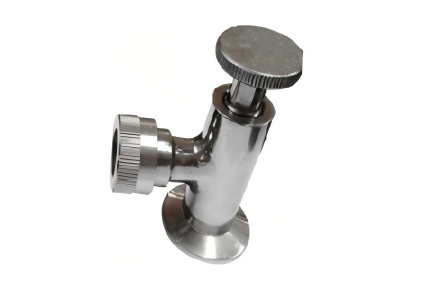Sanitary Level Gauge(3 Way)

1. Definition and Types
A sanitary level gauge is a specialized instrument designed for liquid level measurement in industries requiring high hygiene standards, such as food, pharmaceuticals, and biotechnology. Common types include:
Glass Level Gauge: Uses transparent glass tubes or plates to visually monitor liquid levels, often made of borosilicate glass for chemical resistance
Magnetic Level Gauge: Utilizes a magnetic float and flip indicators for contactless reading, suitable for high-pressure environments
Float Level Gauge: Employs stainless steel floats to measure liquid levels, commonly used in marine and industrial applications
2. Key Features
Materials: Constructed from corrosion-resistant stainless steel (e.g., SUS304, SS316L) or glass, complying with ASTM A270 or FDA standards
Hygienic Design: Features tri-clamp (sanitary clamp) connections, welded joints, or flanges to eliminate dead zones and facilitate cleaning
Certifications: Meets CIP/SIP (Clean-in-Place/Sterilize-in-Place) protocols and industry-specific hygiene requirements
3. Applications
Food & Beverage: Monitoring liquid levels in breweries, dairy tanks, or syrup processing lines
Pharmaceuticals: Ensuring sterile conditions in bioreactors or vaccine production tanks
Chemical Processing: Handling corrosive or high-purity liquids in hygienic environments
4. Technical Specifications
Measurement Range: Typically 0–2000 mm, with options for custom ranges
Pressure/Temperature Resistance: Up to 4.0 MPa and 150°C, depending on model
Output Options: Analog (4–20 mA) or digital signals for integration with control systems
5. Related Terminology
Hygienic Level Gauge: Synonym emphasizing compliance with sanitation standards
Liquid Level Gauge: General term, though less specific to sanitary applications

